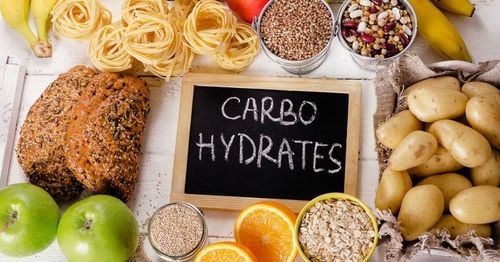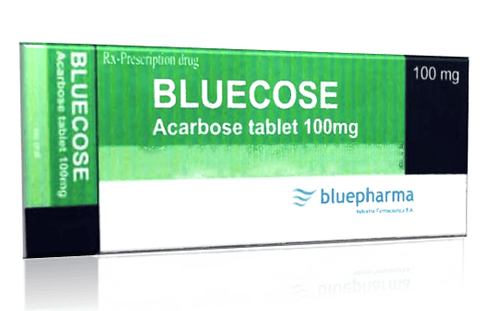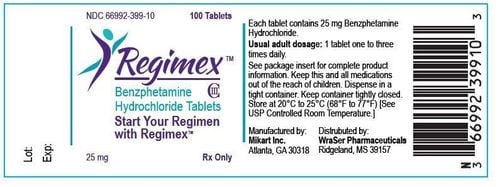This is an automatically translated article.
Reduced carb diets are a weight loss trend. To get in shape and still be healthy, people planning to lose weight should learn about how many carbs are right for them.
1. What is a low-carb diet?
Low-carb diet is also called a low-carbohydrate diet, that is, limiting the consumption of starches, sugars and fiber. Carb-containing foods are rich in calories, while to lose weight, it is necessary to limit the intake of calories into the body. Instead, people who want to lose weight are advised to eat foods rich in protein and fat instead of consuming carbs every day to limit calories.
Carbs are the main source of energy for the body. When it is reduced, the body will switch to consuming the stored protein and fat in the body, which in the long run can lead to weight loss. This means that for healthy weight loss, you need to combine maintaining a low-carb daily diet and increasing sports activities. Several low-carb diets have been used, such as the Atkins diet and the Dukan diet, which have shown rapid weight loss.
2. How does a low-carb diet help in weight loss?
Daily carbs provide the body with 45 - 65% of total calories for all age groups and genders. According to the U.S. Food and Drug Administration (FDA), the Daily Value (DV) of carbs per day is 300 grams when eating a 2,000-calorie diet.
This diet limits carbohydrates, including sugars and starches like bread and pasta, and replaces them with protein, healthy fats, and vegetables.
Studies show that low-carb diets can reduce appetite, lead to them eating fewer calories, and help them lose weight more easily than other diets, as long as they maintain the diet. diet regimen.
Low carb diets also have benefits that go far beyond weight loss. They can help lower blood sugar, blood pressure, and triglycerides. They can also help raise HDL (good) cholesterol and lower LDL (bad) cholesterol.
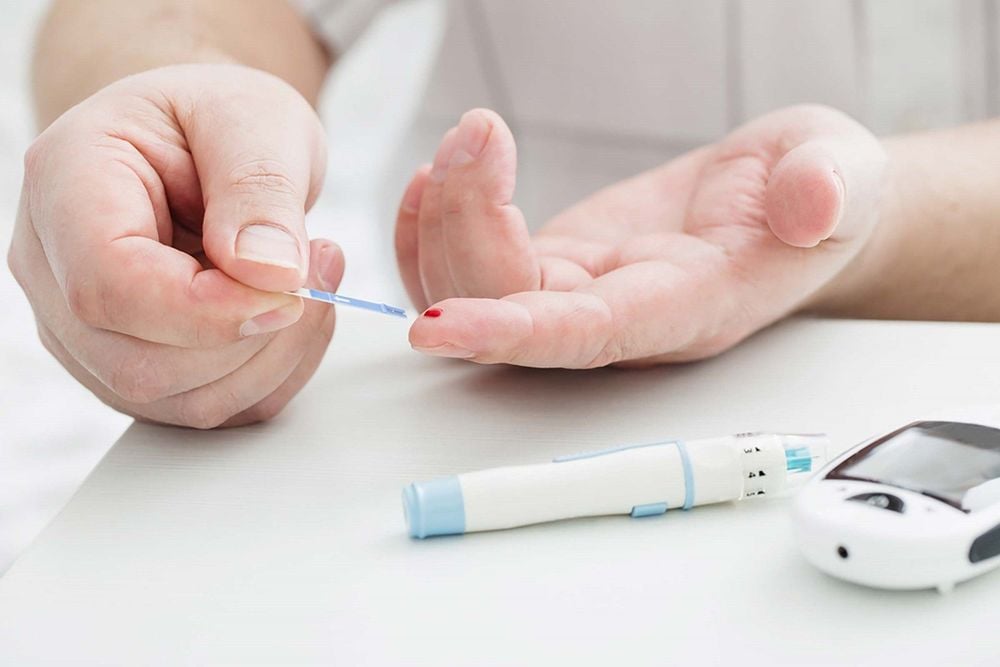
Chế độ ăn ít carbs giúp người bệnh hạ đường huyết một cách đáng kể
This diet also helps significantly lower blood insulin levels, a hormone that carries glucose from carbs into the body's cells. One of the functions of insulin is to store fat. Therefore, lowering insulin reduces fat stores. Insulin also helps the kidneys retain sodium. This is why a high-carb diet can cause excessive water retention. When you cut carbs, insulin drops and the kidneys begin to flush out excess water. Some nutritionists claim that you can lose up to 5 - 10 pounds (2.3 - 4.5 kg) from water loss in the first few days.
Weight loss will slow after the first week, but fat mass will continue to decrease if you maintain the diet. One study compared low-carb and low-fat diets and used DEXA scanners, which are very accurate measures of body composition. People on the low carb diet significantly lost body fat and gained muscle at the same time.
Studies also show that low-carb diets are particularly effective at reducing fat in the abdominal cavity, also known as visceral fat or belly fat. This is the most dangerous fat and is closely associated with many diseases.
3. How many carbs do you need to eat per day to lose weight?
To improve your health in a positive way, you need to eliminate bad carbs from your diet like refined wheat and added sugars. However, for successful weight loss, you also need to limit other sources of carbs. Here are some references from nutritionists about the right amount of carbs to consume while losing weight.3.1 Eat 100 - 150 grams of carbs per day This is a moderate amount of carbs per day. It is suitable for slim, active people who are trying to improve their health and maintain weight. You can lose weight by different sources of carbs, but you also need to learn more about the calorie content and the amount of carbs that need to be put into the body each day to lose weight effectively. Recommended sources of carbs:
All vegetables
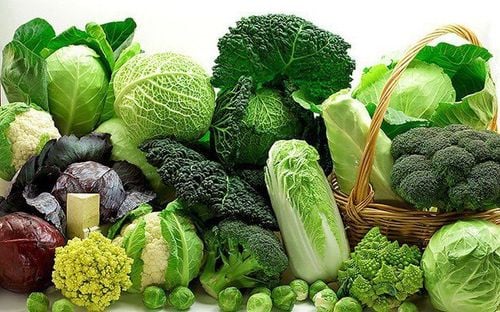
Tất cả các loại rau là nguồn cung cấp carbs hợp lý
A few pieces of fruit a day Moderate amounts of healthy carbs, like potatoes, sweet potatoes, and healthier grains, like rice and oats
3.2 Eat 50-100 grams of carbs per day This range applies to people who want to lose weight while still wanting to eat some preferred source of carbs or help maintain weight if the body is sensitive to carbs.
Recommended sources of carbs:
Lots of vegetables 2 - 3 pieces of fruit per day Consume less starchy carbs 3.3 Eat 20 - 50 grams of carbs per day This low-carb diet applies Suitable for people who want to lose weight quickly, have metabolic problems, are obese or have diabetes. When you eat less than 50 grams of carbs per day, the body enters a state of ketosis, providing energy to the brain through what are known as ketone bodies. Thereby reducing appetite, making weight loss easier.
Recommended sources of carbs:
Lots of low carb vegetables Some berries, can be eaten with ice cream Track carbs from other foods, like avocados, nuts, seeds Note that the diet Low-carb eating doesn't mean a carb-free diet, it's about eating low-carb foods.

Một số loại quả mọng được sử dụng trong chế độ ăn low-carbs
4. Which carbs are good and which are bad for health?
For healthy weight loss, you need to focus on using foods that contain good carbs and limit the amount of bad carbs.
4.1 Good Carbohydrates Fiber-rich vegetables, like sweet potatoes, are an example of good carbs. Good carbs are complex carbohydrates, which means they contain more fiber and nutrients and take longer to digest than bad carbs. A longer digestion time won't cause blood sugar to spike or rise too high.
Examples of good carbs include:
Whole fruits with skin Grains High in fiber vegetables like sweet potatoes Beans and legumes rich in fiber 4.2 Bad carbohydrates Bad carbs are simple carbohydrates easily broken down and quickly cause blood sugar spikes.
Examples of bad carbs include:
White sugar, bread, pasta and flour Sugary drinks and juices Cakes, candies and cookies Other processed foods Reduced carb diets are trending weight loss. However, to lose weight safely and healthy, people planning to lose weight should learn about how much carbs is right for them.
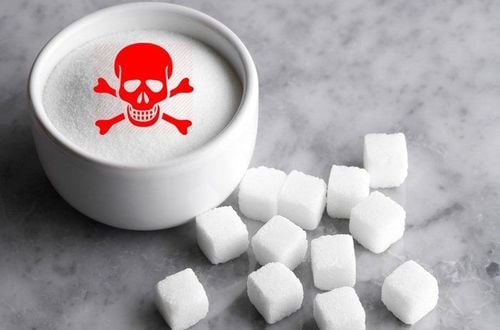
Đường trắng là một trong các Carbs xấu khiến đường máu tăng cao
In order to improve the quality of examination and treatment services, Vinmec International General Hospital has put a system of modern facilities and standard equipment into operation for medical examination and treatment processes. Especially at Vinmec, there is always a team of doctors and nurses ready to listen, advise and treat diseases as well as advise on nutrition and good food for children, adults and the elderly.
If you have a need for consultation and examination at the Hospitals of the National Health System, please book an appointment on the website for service.
References: medicalnewstoday.com, healthline.com, webmd.com
Please dial HOTLINE for more information or register for an appointment HERE. Download MyVinmec app to make appointments faster and to manage your bookings easily.





